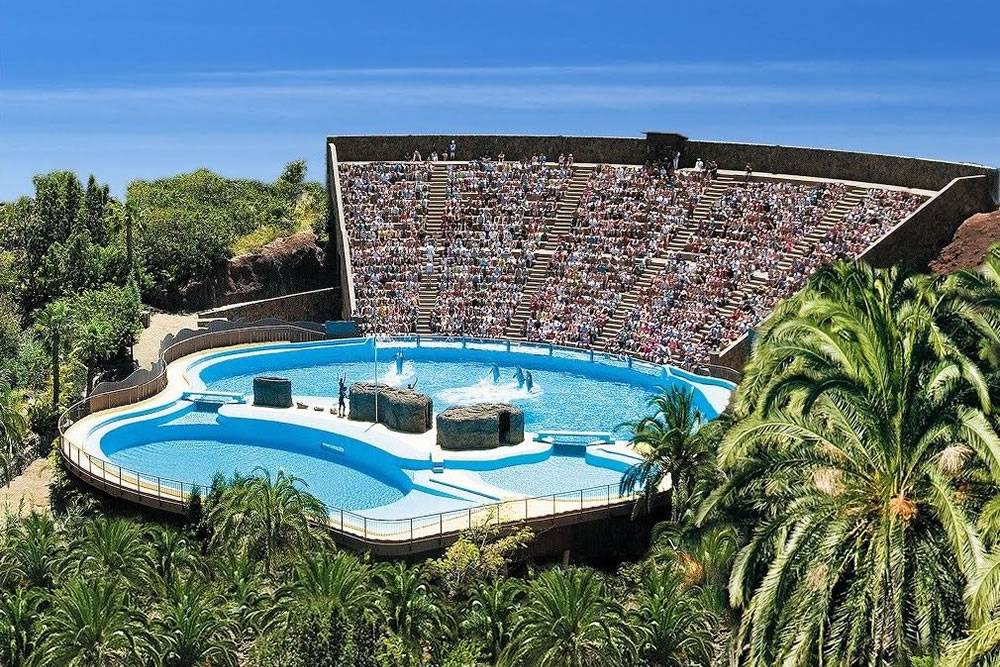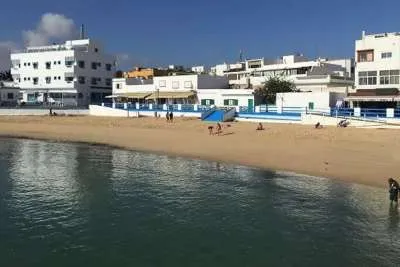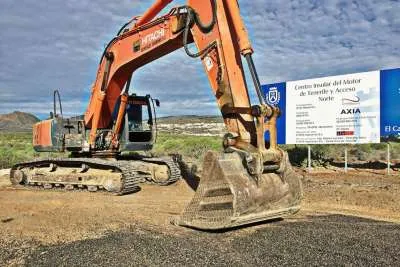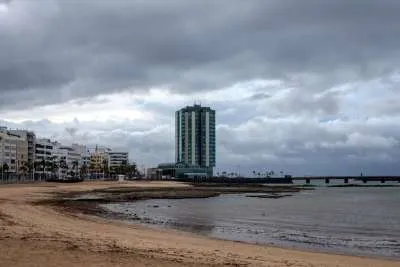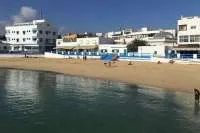Aspro appeals to Supreme Court as last resort to avoid demolition of illegal dolphinarium
- 01-04-2024
- Gran Canaria
- Canarian Weekly
- Photo Credit: Palmitos Park
The fate of the Palmitos Park dolphinarium, which was built on rustic land without permits nearly fourteen years ago in the south of Gran Canaria, will be determined in the Supreme Court. The high court has submitted the appeal lodged by the theme park's promoter, Aspro Parks, for consideration, against a ruling by the Superior Court of Justice of the Canary Islands (TSJC) which upheld the validity of the demolition order for this illegal installation.
In the ruling issued last November, the Administrative Litigation Chamber of the Canarian court endorsed the regional government's decision to uphold the obligation to restore the disrupted legal order despite declaring the sanctions imposed on the company for this urban infraction as expired.
In essence, it affirmed the need to return the land to its original state, which entails demolishing the dolphinarium, one of the main attractions of the park. With the acceptance of the promoter's appeal, it will now be up to the Supreme Court to decide whether the building is ultimately demolished or allowed to stand.
The Palmitos Park dolphinarium was constructed without a license in May 2010. Spanning three interconnected pools and covering an area of 3,000 square metres, this facility stands on rustic land in the vicinity of the Pilancones Natural Park, in the municipality of San Bartolomé de Tirajana.
Construction began following the devastating fire that swept through the southern part of the island in 2007. It was in July 2011, over a year after the facility commenced operations, that the then-called Agency for the Protection of Urban and Natural Environment (APMUN) initiated sanction proceedings, which were concluded eight months later, in March 2012, with the imposition of a fine of just over €100,000 for a serious breach of legal regulations, along with the obligation to restore the altered physical reality.
However, this restitution obligation was suspended pending the resolution of another proceeding. Shortly after the APMUN initiated the sanction procedure, Aspro Parks had approached the Government of the Canary Islands to request approval of a Territorial Action Plan (PAT), an exceptional urban planning instrument aimed at legalizing the dolphinarium. And, at least temporarily, they succeeded.
In 2013, the former COTMAC (Territorial Planning and Environment Commission of the Canary Islands) declared the project of public interest and approved the PAT, with which, a year later, the San Bartolomé de Tirajana City Council granted the building permit.
Four years later, the TSJC annulled the legalisation project, considering it the result of an arbitrary decision and contrary to the General Plan of San Bartolomé de Tirajana. The sentence became final in October 2020, after the Supreme Court did not admit the appeal filed by the Palmitos Park promoter.
The plaintiff in the case urged the execution of the sentence on at least two occasions. However, the company had opened another legal front against the Government of the Canary Islands, which is now the one that the Supreme Court will have to resolve.
Statute of limitations
The administrative act being challenged by Aspro is an order issued on June 16th, 2020 (three months before the aforementioned sentence became final) by the then Councillor for Ecological Transition, Climate Change, and Territorial Planning of the Government of the Canary Islands, José Antonio Valbuena. This order, albeit only partially, upheld the appeal filed by the promoter against the 2012 resolution imposing the penalty and the obligation to restore the altered physical order.
The regional government acknowledged that the fines had expired but warned that this expiry did not extend to the other measure. The company was spared from paying the fine but not from demolishing the dolphinarium.
Palmitos Park's judicial appeal against that order of the Government of the Canary Islands has kept the execution of the final sentence suspended. Initially, the Administrative Litigation Court 1 of Las Palmas de Gran Canaria ruled in favour of the company. In a judgment issued in January 2022, it upheld the appeal and also declared the restitution proceeding expired, allowing the dolphinarium to remain standing.
The judge adopted the company's thesis, arguing that, although initiated simultaneously, there were two separate proceedings, one punitive and the other for restoring legal order, and that in the latter, the administration had resolved beyond the deadline of three months, as argued. by its arguments, the law grants to conclude it.
Both the regional government and the plaintiff in the case appealed that judicial decision to the TSJC, considering that interpretation erroneous, and the Canarian high court overturned the initial ruling and upheld the decision of the Ministry of Ecological Transition.
The judgment of the Canarian high court specifies that the APMUN did not initiate a legal order restoration procedure but a sanctioning proceeding that concluded with the demolition order and, therefore, the statute of limitations was six months. The proceeding was closed eight months after its initiation, but in the meantime, it was suspended twice and for a period exceeding three months awaiting reports that the TSJC deemed necessary to resolve the procedure. Therefore, in the opinion of the Administrative Litigation Chamber, that order had not expired.
In the November judgment, the TSJC also delves into the substance of the matter and refutes the rest of the arguments put forward by the company. The Palmitos Park promoter believes that the building permit granted by the San Bartolomé de Tirajana City Council in 2014, four years after the dolphinarium commenced operations, is a "firm and effective" act that is separate from the urban planning instrument that allowed its granting, the PAT annulled by the courts.
The judgment specifies that large-scale PATs like the one approved for Palmitos Park are considered administrative acts and not general provisions, so once annulled, their effects extend to other actions carried out under their auspices.
The Canarian high court concludes that, at the time the Government of the Canary Islands issued the 2020 order, the works remained unlicensed, as the PAT that allowed it had been annulled by the courts, "with invalidating effects from its inception." And that the decision taken by the regional government was, therefore, correct.
Aspro filed a cassation appeal against that TSJC judgment, and the Supreme Court admitted it for consideration in an order dated March 13th, giving the parties thirty days to appear in the procedure that will ultimately decide whether the dolphinarium of the park is demolished or remains standing.
Other articles that may interest you...
Trending
Most Read Articles
Featured Videos
TributoFest: Michael Buble promo 14.02.2026
- 30-01-2026
TEAs 2025 Highlights
- 17-11-2025


